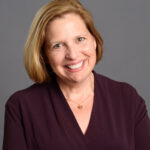
Dr. Jonas
The Rheumatology Research Foundation and the ACR Committee on Training and Workforce Issues invited and offered scholarships to a group of students under-represented in medicine (URiM) to attend ACR Convergence 2022, Dr. Wright says, which included panels and special networking sessions geared for them. The URiM Convergence Scholarship returns for a second year at ACR Convergence 2023.
The ACR’s Collaborative Initiatives Committee also introduced Project LEAD in 2023, which coordinates roundtables between URiM rheumatologists and medical students from historically Black colleges and universities. Such programs are another way to invite a diverse group of candidates to enter the specialty.
Another possibility is collaboration with such groups as the Latino Medical Student Association and the Student National Medical Association, both of which are open to anyone but focus on those from under-represented groups, Dr. Jonas says.
3. Offer more rheumatology slots. Rheumatology is a more competitive specialty than in previous decades, Dr. Helfgott says. Despite a workforce shortage, there are still not enough fellowship slots to accommodate the number of medical students who would like to enter the specialty. He would like to see funding from industry or other relevant sources to support additional slots and enable more candidates to enter the field. Adding slots in areas of the country that currently don’t have rheumatology programs could also help increase diversity, he explains.
4. Look for diversity in personal statements and achievements. Dr. Helfgott recalls a fellowship candidate whose personal statement shared that their first experience with the American healthcare system was serving as a translator at age 6 or 7. The candidate helped his parents, one of whom spoke only Italian and the other who only spoke Spanish. Another personal statement he recalls was from a candidate who shared their fear of monkeys, which stemmed from the necessity of walking to school in India through part of a jungle where monkeys could attack. Stories like these help identify candidates with diverse backgrounds and experiences, as well as candidates who may bring a different perspective to your program, Dr. Helfgott says.
Other ideas include adding adversity scores for applicants to measure hardships they’ve faced to reach medical school or essays to address social justice challenges faced by an applicant on their personal journey to a career in healthcare.5
Admissions decision makers also can focus on what fellowship candidates have done beyond research—something many schools find important but that not all candidates may have had the time or resources to concentrate on, Dr. Helfgott says.


